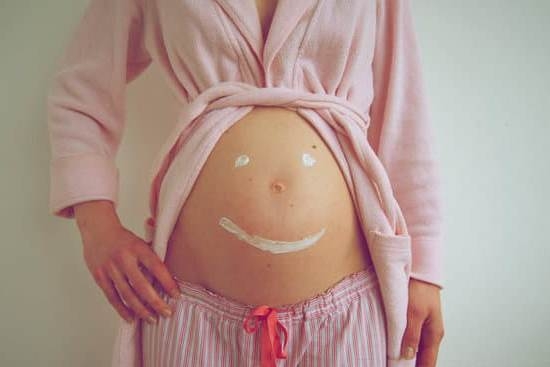Can you reuse a pregnancy test? Understanding the reasons behind this question is important when considering the potential dangers and limitations of reusing a pregnancy test. A pregnancy test is a common tool used to determine whether or not a woman is pregnant, typically by detecting the presence of the hormone hCG. While it may be tempting to reuse a pregnancy test for financial or environmental reasons, there are important factors to consider before doing so.
Pregnancy tests work by detecting the presence of the hormone human chorionic gonadotropin (hCG) in urine, which is produced during early pregnancy. The components of a pregnancy test interact with hCG, causing a visible result that indicates whether or not the hormone is present.
However, the question remains: can you reuse a pregnancy test? While some individuals may be tempted to do so in an attempt to save money or reduce waste, there are potential risks and limitations associated with reusing a pregnancy test.
Reusing a pregnancy test can lead to inaccurate results and pose potential dangers for individuals relying on its outcome. The reliability and accuracy of a reused pregnancy test can be compromised, leading to misleading results that could have significant implications for an individual’s reproductive health decisions. It is essential to consider these factors when contemplating the reuse of a pregnancy test, as well as understanding the recommended use and limitations of this common diagnostic tool.
How a Pregnancy Test Works
Pregnancy tests work by detecting the presence of the hormone human chorionic gonadotropin (hCG) in a woman’s urine. hCG is produced by the cells that will eventually form the placenta, and its levels increase significantly in early pregnancy. The hormone can be detected in urine as early as 10 days after conception, making it a reliable marker for pregnancy.
Most pregnancy tests consist of a plastic casing containing an absorbent material, a control line, and a test line. The absorbent material is usually coated with antibodies that specifically bind to hCG.
When a woman urinates on the absorbent tip, any hCG present in the urine will bind to these antibodies and begin to migrate up the test strip. If hCG is present in sufficient quantities, it will bind to dye particles on the test line, causing it to change color.
The control line serves as an indicator that the test has been performed correctly and helps ensure accurate results. This control line should always appear if the test is functioning properly. If there is no control line, then it cannot be guaranteed that the test worked correctly, and therefore any interpretation of other lines may not be valid. It’s important to understand these components when considering whether or not it is safe to reuse a pregnancy test.
- Plastic casing
- Absorbent material
- Control line
- Test line
Can You Reuse a Pregnancy Test?
Many individuals might wonder if they can reuse a pregnancy test due to cost or convenience reasons. However, it’s essential to understand that reusing a pregnancy test carries significant risks and limitations. Once a pregnancy test has been used, the chemicals within it have already reacted with any hCG present in the urine sample. As such, attempting to reuse one for another sample would likely yield inaccurate results.
The reliability and accuracy of a reused pregnancy test cannot be guaranteed because once it has come into contact with urine containing hCG, its chemical components are already activated and may not react as intended for subsequent tests. This means that using a previously used pregnancy test could potentially lead to false-negative or false-positive results, causing unnecessary stress or missing out on critical information about one’s reproductive health.
Additionally, reusing a pregnancy test exposes individuals to potential health risks due to its unsterile nature post-use. The absorbent material within the test could harbor bacteria or other pathogens from previous use, posing health hazards if brought into contact with bodily fluids again.
- Risks and limitations of reusing a pregnancy test
- Potential inaccurate results
- Possible health risks related to reuse
Can You Reuse a Pregnancy Test
Pregnancy tests are designed for single use only, and reusing them can compromise their accuracy. While some individuals might consider reusing a pregnancy test to save money or out of curiosity, it is important to understand the potential risks and limitations associated with this practice. Reusing a pregnancy test can lead to inaccurate results, as the components of the test may not function properly after initial use.
The main reason why someone might want to reuse a pregnancy test is cost-saving. Pregnancy tests can be expensive, and some individuals may be hesitant to purchase multiple tests if they are trying to conceive or monitoring their fertility. Additionally, curiosity about the accuracy of a previous test result may also prompt someone to consider reusing a pregnancy test.
However, there are significant risks and limitations associated with reusing a pregnancy test. The most prominent risk is the potential for inaccurate results. Once a pregnancy test has been used, its sensitivity to hCG (the hormone detected in pregnant women) may be compromised, leading to misleading results. The components of the test may also deteriorate over time, affecting its ability to accurately detect hCG levels in urine samples.
| Reasons for Reusing | Risks and Limitations |
|---|---|
| Cost-saving | Inaccurate results |
| Curiosity about previous result | Deterioration of test components |
The Risks of Reusing a Pregnancy Test
Potential Inaccuracies and Misleading Results
Reusing a pregnancy test can lead to potential inaccuracies and misleading results. When a pregnancy test is used, the chemicals on the test strip react to the presence of the hormone hCG in a woman’s urine.
However, once the test has been used, those chemicals have already reacted and may not be able to detect hCG as accurately if reused. This can result in false negatives or false positives, leading to unnecessary stress and confusion for the individual taking the test.
Loss of Sensitivity
Another risk of reusing a pregnancy test is the loss of sensitivity. Over time, especially if not stored properly, the components of a pregnancy test can degrade, reducing their ability to accurately detect hCG in urine. This can result in a lowered sensitivity of the test and increase the likelihood of receiving inaccurate results. As a result, relying on a reused pregnancy test can hinder an individual’s ability to receive clear and reliable information about their potential pregnancy status.
Negative Health Implications
In addition to providing inaccurate results, reusing a pregnancy test can also have negative health implications for individuals. Using an expired or degraded test can potentially lead to missed opportunities for early prenatal care or unnecessary exposure to emotional distress if results are unreliable. It is crucial for individuals considering taking a pregnancy test to prioritize their health and well-being by using new, unused tests for accurate and reliable results.
How to Properly Use a Pregnancy Test
When it comes to taking a pregnancy test, it is important to do so correctly in order to ensure accurate results. While some may consider reusing a pregnancy test for various reasons, it is crucial to understand that doing so can compromise the reliability of the results. Here are detailed instructions on how to properly use a pregnancy test, as well as the importance of using a new, unused test for accurate results.
1. Read the Instructions: Before using a pregnancy test, carefully read and follow the manufacturer’s instructions included with the product. Each brand may have slightly different guidelines for usage, so it is essential to familiarize yourself with the specific steps for your chosen test.
2. Choose the Right Time: The best time to take a pregnancy test is in the morning when your urine is more concentrated with the hCG hormone. However, if you cannot take the test in the morning, make sure to avoid excessive fluid intake for at least two hours before testing.
3. Use a New Test: It is imperative that you use a new and unused pregnancy test when checking for pregnancy. Reusing a pregnancy test can lead to inaccurate results due to residual chemicals or hormones from prior tests that can affect the outcome. Additionally, expired or used tests may not provide reliable results.
4. Follow Proper Technique: Follow the instructions carefully, ensuring that you collect your urine sample as directed and wait for the appropriate amount of time before reading your results.
5. Seek Medical Advice: If you receive unexpected or unclear results from a pregnancy test, it is essential to seek medical advice from a healthcare professional rather than reusing an old test. A healthcare provider can perform additional testing and offer guidance on next steps based on your individual circumstances.
By following these steps and using a new, unused pregnancy test, you can increase the chances of obtaining accurate results when checking for pregnancy. Remember that proper usage and interpretation of a pregnancy test are crucial in determining accurate results and seeking appropriate medical care if necessary.
Environmental and Cost Considerations
When considering the environmental impact of pregnancy test disposal, it’s important to note that these tests contain plastic and other non-biodegradable materials, which can contribute to pollution if not disposed of properly. The disposable nature of pregnancy tests means that they contribute to waste accumulation in landfills. Reusing a pregnancy test may seem like a way to minimize waste, but it’s essential to understand the potential risks and limitations associated with doing so.
Environmental Impact of Pregnancy Test Disposal
The disposal of used pregnancy tests can have a detrimental impact on the environment due to the materials they are made from. Many pregnancy tests contain plastic casings, as well as potentially hazardous chemicals within the test strip itself. Improperly disposed of tests can release these harmful substances into the environment, posing a threat to wildlife and natural ecosystems.
Cost Implications of Purchasing Multiple Tests Due to Reusing Them
While some individuals may consider reusing a pregnancy test as a cost-saving measure, it’s important to weigh this against potential negative outcomes. Using a new test each time ensures accuracy and reliability in the results.
In contrast, reusing a pregnancy test may lead to inconclusive or incorrect readings, possibly resulting in further expense for additional testing or medical consultation. It is essential to consider the long-term financial implications and potential risks when deciding whether or not to reuse a pregnancy test.
Overall, while there may be an initial financial appeal in reusing pregnancy tests for cost savings or environmental reasons, it is crucial to prioritize accuracy and reliability when it comes to such an important health matter. Consideration should also be given to the environmental impact of disposing of single-use devices improperly. Therefore, using pregnancy tests according to their intended purpose and ensuring proper disposal methods can help protect both personal health and the environment.
Alternatives to Reusing a Pregnancy Test
Reusing a pregnancy test is a topic that has generated some discussion, with some individuals considering this option due to various reasons such as cost-saving or environmental impact. However, it’s essential to understand the potential risks and limitations of reusing a pregnancy test to make an informed decision. While it may be tempting to reuse a pregnancy test, it is crucial to consider the accuracy and reliability of the results when doing so.
One of the primary concerns regarding reusing a pregnancy test is its accuracy. When a pregnancy test is reused, there is a possibility of obtaining inaccurate or misleading results. This is because the components of the test may not function correctly after initial use, leading to false positive or false negative results. Additionally, hCG levels in urine can vary significantly from day to day during early pregnancy, further impacting the reliability of reused tests.
Furthermore, reusing a pregnancy test may have implications for overall health and wellbeing. If an individual relies on reused tests for critical decisions regarding their reproductive health, they may miss vital information about their pregnancy status leading to delays in seeking appropriate medical care. This delay could potentially affect prenatal care and maternal-fetal outcomes.
| Risks of Reusing a Pregnancy Test | Data |
|---|---|
| Inaccuracy of Results | False positive or false negative results due to faulty components |
| Health Implications | Potential delays in seeking appropriate medical care and prenatal support |
Conclusion
In conclusion, the decision to reuse a pregnancy test raises several important considerations. While it may be tempting to save money or limit environmental impact by reusing a test, the potential risks and limitations outweigh these perceived benefits.
The accuracy and reliability of a reused pregnancy test can be compromised, leading to misleading results and potentially impacting important decisions about one’s health and future. Therefore, it is crucial to emphasize the importance of using a new, unused pregnancy test for accurate results.
Furthermore, properly using a pregnancy test is essential in obtaining reliable results. Following the manufacturer’s instructions, using the test at the appropriate time, and ensuring that it has not expired are all critical factors in obtaining accurate results. Reusing a pregnancy test introduces unnecessary variables that can affect its ability to effectively detect hCG and provides an unreliable indication of pregnancy.
For individuals concerned about cost or environmental impact, there are alternative solutions available. Affordable testing options and seeking professional medical advice offer reliable ways to address these concerns without resorting to reusing a pregnancy test. By prioritizing accuracy and reliability in pregnancy testing, individuals can ensure that they have access to the necessary information for making informed decisions about their reproductive health.
Frequently Asked Questions
Can You Use Same Pregnancy Test Twice?
It is not recommended to use the same pregnancy test twice. Once a test has been used, the chemicals may have been depleted, affecting the accuracy of the results.
How Many Times Can You Repeat a Pregnancy Test?
You can repeat a pregnancy test as many times as you wish, but it’s important to follow the instructions and use a new test each time to ensure accurate results.
What Happens if I Use an Old Pregnancy Test?
Using an old pregnancy test may result in inaccurate results. The chemical components could degrade over time, leading to false positives or negatives. It’s best to use a fresh and unexpired test for reliable results.

Welcome to my fertility blog. This is a space where I will be sharing my experiences as I navigate through the world of fertility treatments, as well as provide information and resources about fertility and pregnancy.





